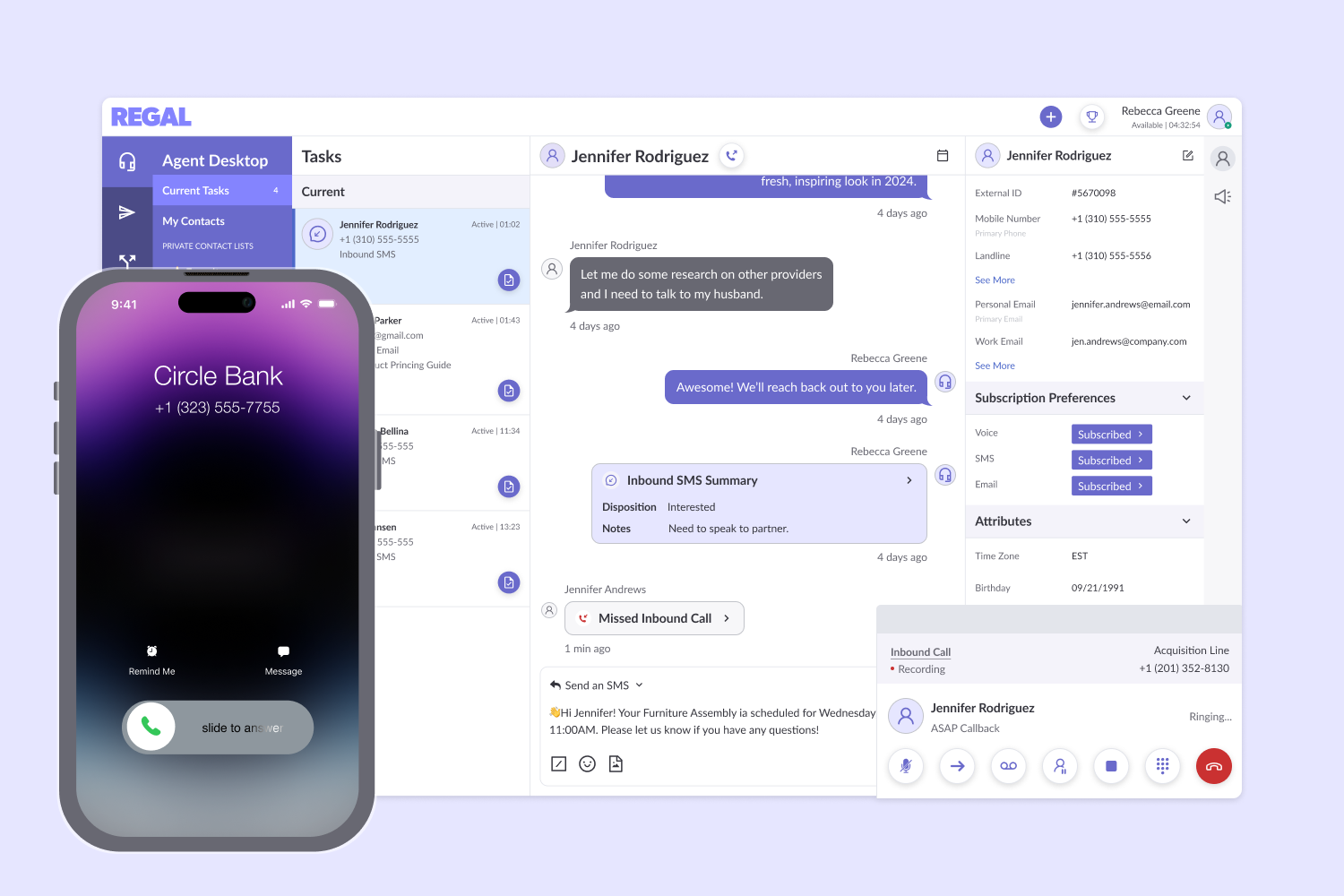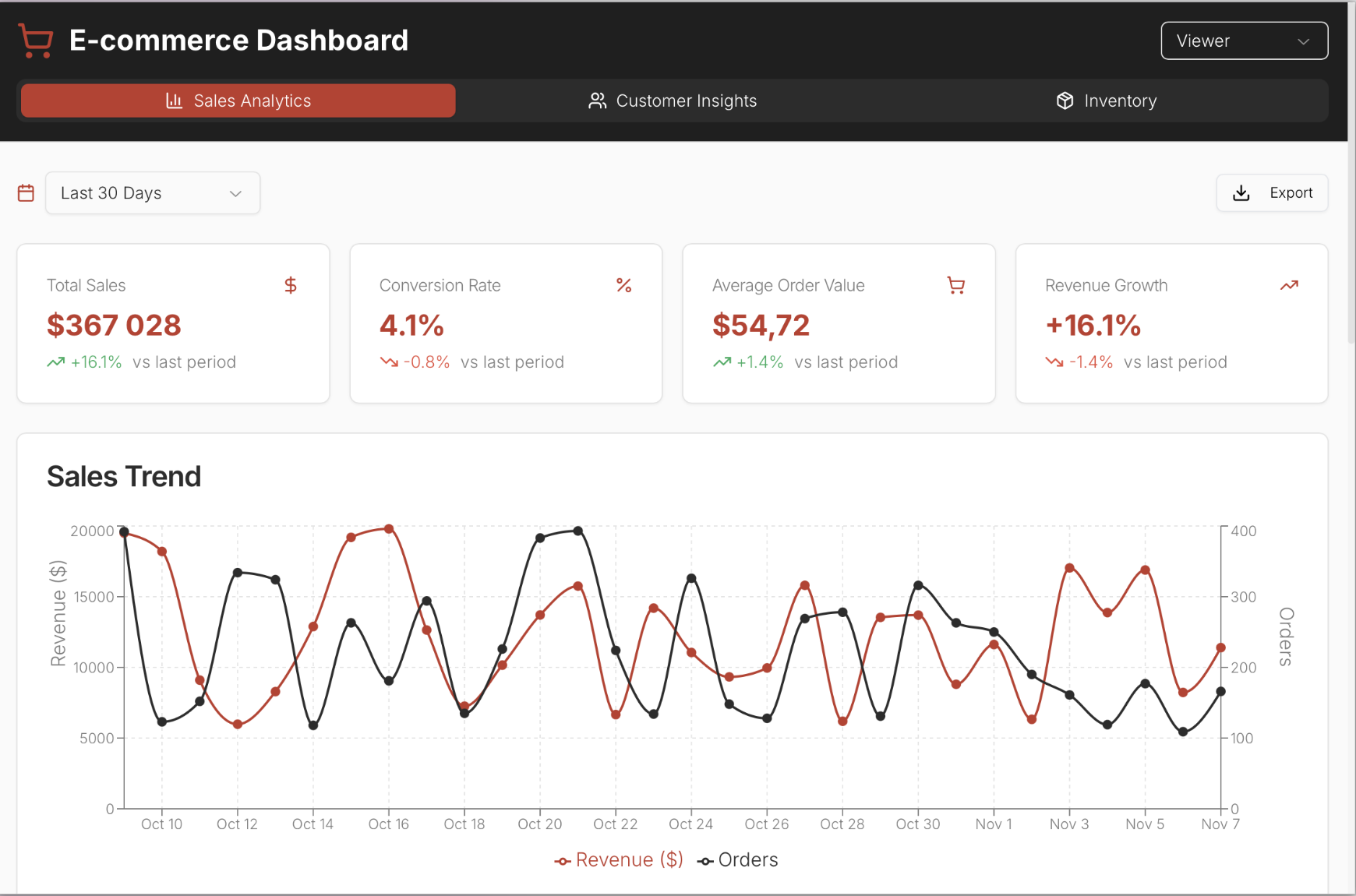
AI Agents for E-commerce: Navigating the Top Tools
Companies are increasingly turning to AI assistants that help respond to customer queries, drive sales, optimize operations, and adapt in real-time. Some ecommerce AI Agents can build tools that process payments, issue refunds, forecast inventory, and even interact with customers via text or AI voice agents for e-commerce channels like WhatsApp or phone.
In this article, we’ll explore five best tools for online merchants, outline their key features, pros and cons, and suggest which business types they’re best suited for.
Gorgias AI Agent

Gorgias AI Agent is a customer support platform designed specifically for e-commerce. It allows online stores to automate their support workflow, prioritizing customer issues that require hands-on help, offering ready-made solutions.
Key features:
- Integrates with social channels and storefront platforms like Shopify, BigCommerce, Magento, etc.
- Tracks automation rates, refunds, response times, CSAT scores, and subscription edits.
- Built-in plug-and-play system that learns brand voice, policies, and catalog data to automate responses similar to on-brand.
Pros:
- Tailored for e-commerce workflows.
- High automation potential.
- All-in-one platform reduces the need for switching between systems.
Cons:
- Cost may be high for smaller merchants.
- Requires a good setup to reach high accuracy.
- Difficulties in resolving complex situations requiring emotional involvement.
Best for: Mid-to-large e-commerce stores (especially Shopify/Shopify Plus) that handle significant support volume and want to shift support from cost-centre to revenue-driver.
Regal AI Agent

Regal AI Agent is a contact center platform specializing in voice-based and multilingual customer communication. Unlike most chat-first tools, Regal’s agents can hold natural voice conversations and integrate with telephony systems, helping brands ensure no customer waits and provide better service.
Key features:
- Handles both text and voice interactions in 30+ languages and multiple accents.
- The system is accessible through various channels such as SMS, chat, and calls.
- Provides conversation design, A/B testing tools, and real-time customer-data integration.
- Connects to CRM systems for real-time data lookups.
Pros:
- Strong edge in voice channel commerce and multilingual settings.
- Useful for brands with a global footprint or voice-first customers.
- Supports experimentation (A/B testing) so you can optimize flows.
Cons:
- Requires integration with existing call systems.
- It might be more suited for enterprise scale rather than small stores.
Best for: Global brands or e-commerce stores that want to include voice agents for e-commerce.
Akira AI Agent

Akira AI Agent is a retail AI platform that helps businesses monitor competitors, analyze industry trends, automate, optimize workflows, and predict market changes. It’s used by retailers to power recommendation engines, automate merchandising, and unify customer profiles.
Key features:
- Real-time learning capabilities to adapt continuously to new data patterns.
- Builds dynamic shopper profiles using AI graphs.
- Synchronises data from both physical and digital stores.
- Supports cross-channel campaigns and loyalty programs, and dynamically responds to behaviour.
Pros:
- Strong choice for brands seeking advanced personalisation and cross-channel orchestration.
- Moves beyond support into growth, engagement, and loyalty.
- Applicable for brands with both online + offline presence.
- Drives long-term engagement and higher basket value.
Cons:
- Possibly overkill for pure online small businesses.
- Implementation complexity may be higher.
- Needs substantial data input for accuracy.
- ROI is gradual, not instant.
Best for: Mid/large retail brands (online + offline) that want to embed AI agents ecommerce-style across the buyer journey.
Triple Whale Moby Agents
.webp)
Moby Agents are analytical AI agents developed by Triple Whale. This platform focuses on data intelligence across marketing and sales, helping brands determine performance metrics, forecast trends, optimize ad spend, and make strategic decisions.
Key features:
- Connects to Shopify, Google Ads, WooCommerce, Meta, Stripe, etc.
- Focused on business intelligence for e-commerce brands.
- Uses natural-language queries to analyse store performance.
- Provides automated insights, forecasts, and anomaly detection.
Pros:
- Excellent for data-driven decision-making and optimisation.
- Helps brands scale reporting, reduce human analytics load and manual reporting.
- Works for both brands and agencies.
Cons:
- Not oriented toward conversational customer or support, and front-end interactions.
- Requires a mature data infrastructure or a willingness to integrate.
- It may be expensive for very small merchants.
Best for: Established brands with significant SKUs, multiple channels, and analytics demands that want to optimize beyond just “chat support”.
Bonus: UI Bakery AI Agent

While it’s not a traditional chat agent, UI Bakery is one of the top solutions for internal tool building. This AI Agent enables ecommerce companies to build custom internal tools, dashboards, and interfaces using natural language prompts.
Key features:
- Connects to 45+ databases/APIs (MySQL, PostgreSQL, DynamoDB, JSON APIs, Sheets).
- AI Development Agent turns text prompts into working UI components, apps, internal dashboards, and admin panels in a few minutes.
- Great for integrating e-commerce back-office systems.
- Rich template selection, so you can start with e-commerce dashboard template.
Pros:
- Highly flexible and low-code: you can build custom workflows, dashboards, and internal automation around your e-commerce operations (inventory tools, order dashboards, custom workflows).
- Useful for internal operations rather than just front-end customer interaction.
Cons:
- Not strictly customer-facing – more for operations teams.
- May require some tech knowledge
Best for: Ecommerce brands that want to build bespoke internal tooling, integrate data systems, and automate operational workflows.
Wrapping up
Whether you’re automating support, analysing data, or creating personalised experiences, AI agents for ecommerce solutions are evolving faster than ever. Staying updated with AI agents e-commerce industry news 2025 helps brands understand new possibilities and prepare for next-generation automation.
The key is to match your needs with the right ecommerce AI agents – customer service, data analytics, personalisation, or internal tooling, for example:
- Gorgias for customer chat.
- Triple Whale for analytics.
- Akira for deep personalisation.
- Regal for voice.
- UI Bakery for internal workflows.
Regardless of the tool choice, make sure the agent aligns with your operations, customers, and growth vision.




